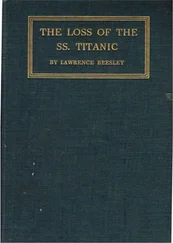Theodore Dreiser - The Titan
Здесь есть возможность читать онлайн «Theodore Dreiser - The Titan» весь текст электронной книги совершенно бесплатно (целиком полную версию без сокращений). В некоторых случаях можно слушать аудио, скачать через торрент в формате fb2 и присутствует краткое содержание. Жанр: Классическая проза, на английском языке. Описание произведения, (предисловие) а так же отзывы посетителей доступны на портале библиотеки ЛибКат.
- Название:The Titan
- Автор:
- Жанр:
- Год:неизвестен
- ISBN:нет данных
- Рейтинг книги:5 / 5. Голосов: 1
-
Избранное:Добавить в избранное
- Отзывы:
-
Ваша оценка:
- 100
- 1
- 2
- 3
- 4
- 5
The Titan: краткое содержание, описание и аннотация
Предлагаем к чтению аннотацию, описание, краткое содержание или предисловие (зависит от того, что написал сам автор книги «The Titan»). Если вы не нашли необходимую информацию о книге — напишите в комментариях, мы постараемся отыскать её.
The Titan — читать онлайн бесплатно полную книгу (весь текст) целиком
Ниже представлен текст книги, разбитый по страницам. Система сохранения места последней прочитанной страницы, позволяет с удобством читать онлайн бесплатно книгу «The Titan», без необходимости каждый раз заново искать на чём Вы остановились. Поставьте закладку, и сможете в любой момент перейти на страницу, на которой закончили чтение.
Интервал:
Закладка:
Swanson was not heated or antipathetic. He was cool, firm, well-intentioned.
Dickensheets passed his hand over a wide, high temple. He seemed to be meditating something—some hitherto untried statement or course of action.
“Well, Governor,” he repeated, “I want to thank you, anyhow. You have been exceedingly kind. By the way, I see you have a large, roomy safe here.” He had picked up the bag he was carrying. “I wonder if I might leave this here for a day or two in your care? It contains some papers that I do not wish to carry into the country with me. Would you mind locking it up in your safe and letting me have it when I send for it?”
“With pleasure,” replied the governor.
He took it, placed it in lower storage space, and closed and locked the door. The two men parted with a genial hand-shake. The governor returned to his meditations, the judge hurried to catch a car.
About eleven o’clock the next morning Swanson was still working in his office, worrying greatly over some method whereby he could raise one hundred thousand dollars to defray interest charges, repairs, and other payments, on a structure that was by no means meeting expenses and was hence a drain. At this juncture his office door opened, and his very youthful office-boy presented him the card of F. A. Cowperwood. The governor had never seen him before. Cowperwood entered brisk, fresh, forceful. He was as crisp as a new dollar bill—as clean, sharp, firmly limned.
“Governor Swanson, I believe?”
“Yes, sir.”
The two were scrutinizing each other defensively.
“I am Mr. Cowperwood. I come to have a very few words with you. I will take very little of your time. I do not wish to go over any of the arguments that have been gone over before. I am satisfied that you know all about them.”
“Yes, I had a talk with Judge Dickensheets yesterday.”
“Just so, Governor. Knowing all that you do, permit me to put one more matter before you. I know that you are, comparatively, a poor man—that every dollar you have is at present practically tied in this building. I know of two places where you have applied for a loan of one hundred thousand dollars and have been refused because you haven’t sufficient security to offer outside of this building, which is mortgaged up to its limit as it stands. The men, as you must know, who are fighting you are fighting me. I am a scoundrel because I am selfish and ambitious—a materialist. You are not a scoundrel, but a dangerous person because you are an idealist. Whether you veto this bill or not, you will never again be elected Governor of Illinois if the people who are fighting me succeed, as they will succeed, in fighting you.”
Swanson’s dark eyes burned illuminatively. He nodded his head in assent.
“Governor, I have come here this morning to bribe you, if I can. I do not agree with your ideals; in the last analysis I do not believe that they will work. I am sure I do not believe in most of the things that you believe in. Life is different at bottom perhaps from what either you or I may think. Just the same, as compared with other men, I sympathize with you. I will loan you that one hundred thousand dollars and two or three or four hundred thousand dollars more besides if you wish. You need never pay me a dollar—or you can if you wish. Suit yourself. In that black bag which Judge Dickensheets brought here yesterday, and which is in your safe, is three hundred thousand dollars in cash. He did not have the courage to mention it. Sign the bill and let me beat the men who are trying to beat me. I will support you in the future with any amount of money or influence that I can bring to bear in any political contest you may choose to enter, state or national.”
Cowperwood’s eyes glowed like a large, genial collie’s. There was a suggestion of sympathetic appeal in them, rich and deep, and, even more than that, a philosophic perception of ineffable things. Swanson arose. “You really don’t mean to say that you are trying to bribe me openly, do you?” he inquired. In spite of a conventional impulse to burst forth in moralistic denunciation, solemnly phrased, he was compelled for the moment to see the other man’s viewpoint. They were working in different directions, going different ways, to what ultimate end?
“Mr. Cowperwood,” continued the governor, his face a physiognomy out of Goya, his eye alight with a kind of understanding sympathy, “I suppose I ought to resent this, but I can’t. I see your point of view. I’m sorry, but I can’t help you nor myself. My political belief, my ideals, compel me to veto this bill; when I forsake these I am done politically with myself. I may not be elected governor again, but that does not matter, either. I could use your money, but I won’t. I shall have to bid you good morning.”
He moved toward the safe, slowly, opened it, took out the bag and brought it over.
“You must take that with you,” he added.
The two men looked at each other a moment curiously, sadly—the one with a burden of financial, political, and moral worry on his spirit, the other with an unconquerable determination not to be worsted even in defeat.
“Governor,” concluded Cowperwood, in the most genial, contented, undisturbed voice, “you will live to see another legislature pass and another governor sign some such bill. It will not be done this session, apparently, but it will be done. I am not through, because my case is right and fair. Just the same, after you have vetoed the bill, come and see me, and I will loan you that one hundred thousand if you want it.”
Cowperwood went out. Swanson vetoed the bill. It is on record that subsequently he borrowed one hundred thousand dollars from Cowperwood to stay him from ruin.
Chapter LVI.
The Ordeal of Berenice
At the news that Swanson had refused to sign the bill and that the legislature lacked sufficient courage to pass it over his veto both Schryhart and Hand literally rubbed their hands in comfortable satisfaction.
“Well, Hosmer,” said Schryhart the next day, when they met at their favorite club—the Union League—“it looks as though we were making some little progress, after all, doesn’t it? Our friend didn’t succeed in turning that little trick, did he?”
He beamed almost ecstatically upon his solid companion.
“Not this time. I wonder what move he will decide to make next.”
“I don’t see very well what it can be. He knows now that he can’t get his franchises without a compromise that will eat into his profits, and if that happens he can’t sell his Union Traction stock. This legislative scheme of his must have cost him all of three hundred thousand dollars, and what has he to show for it? The new legislature, unless I’m greatly mistaken, will be afraid to touch anything in connection with him. It’s hardly likely that any of the Springfield politicians will want to draw the fire of the newspapers again.”
Schryhart felt very powerful, imposing—sleek, indeed—now that his theory of newspaper publicity as a cure was apparently beginning to work. Hand, more saturnine, more responsive to the uncertainty of things mundane—the shifty undercurrents that are perpetually sapping and mining below—was agreeable, but not sure. Perhaps so.
In regard to his Eastern life during this interlude, Cowperwood had been becoming more and more keenly alive to the futility of the attempt to effect a social rescue for Aileen. “What was the use?” he often asked himself, as he contemplated her movements, thoughts, plans, as contrasted with the natural efficiency, taste, grace, and subtlety of a woman like Berenice. He felt that the latter could, if she would, smooth over in an adroit way all the silly social antagonisms which were now afflicting him. It was a woman’s game, he frequently told himself, and would never be adjusted till he had the woman.
Читать дальшеИнтервал:
Закладка:
Похожие книги на «The Titan»
Представляем Вашему вниманию похожие книги на «The Titan» списком для выбора. Мы отобрали схожую по названию и смыслу литературу в надежде предоставить читателям больше вариантов отыскать новые, интересные, ещё непрочитанные произведения.
Обсуждение, отзывы о книге «The Titan» и просто собственные мнения читателей. Оставьте ваши комментарии, напишите, что Вы думаете о произведении, его смысле или главных героях. Укажите что конкретно понравилось, а что нет, и почему Вы так считаете.










